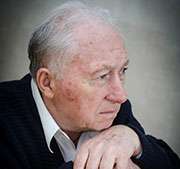(HealthDay)—Primary androgen deprivation therapy increases diabetes risk, particularly in men under 70 years of age, according to research published in the June issue of The Journal of Urology.
Huei-Ting Tsai, Ph.D., from the Georgetown University Medical Center in Washington, D.C., and colleagues analyzed retrospective data from 12,191 men diagnosed with incident localized prostate cancer from 1995 to 2008 (age 35 to 100 years). The men were without diabetes at diagnosis and did not receive prostatectomy or radiation. Primary androgen deprivation therapy was characterized as occurring within one year of diagnosis.
The researchers found that over a median 4.8 years of follow up, 9.9 percent of patients developed diabetes. The respective incidence rates were 2.5 and 1.6 events per 100 person-years in the primary androgen deprivation therapy and nonprimary androgen deprivation therapy groups. There was a 1.61-fold increase in diabetes risk with primary androgen deprivation therapy. The number needed to harm was 29. In men ≤70 years, the association was stronger, compared to older men (HR 2.25 versus 1.40; P = 0.008).
"Primary androgen deprivation therapy may increase diabetes risk by 60 percent and should be used with caution when managing localized prostate cancer," the authors write. "Because of the consistent association between androgen deprivation therapy and greater diabetes risk across disease states, we recommend routine screening and lifestyle interventions to reduce the risk of diabetes in men receiving androgen deprivation therapy."
More information:
Abstract
Full Text (subscription or payment may be required)
Journal information: Journal of Urology
Copyright © 2015 HealthDay. All rights reserved.


















